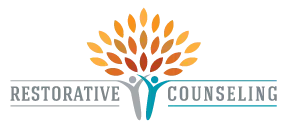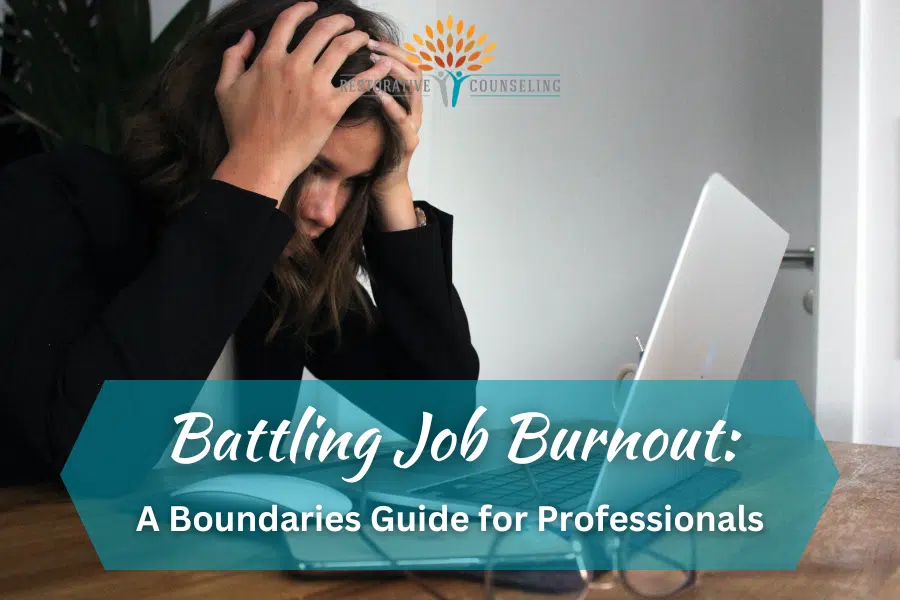Written by Jordan Meehan, LCSW
Every job has its ups and downs. When those “downs” consistently outweigh the “ups,” burnout can set in. Often, people get to the point of burnout before they even realize what has happened. As a professional in today’s fast-paced world, it’s crucial to prioritize your mental health. Burnout is a real threat that can impact not only your work performance but also your overall well-being. However, you can learn about the signs of burnout and practical strategies to help you maintain a healthy work-life balance.
Recognizing the Signs of Job Burnout
Consider what burnout looks like for you. Try asking yourself the following questions to determine if you need to reassess how you approach your job and manage your work-related stress:
Am I not taking care of my basic needs?
Neglecting your basic needs, such as sleep, nutrition, and exercise, can be an early sign of burnout. When work consumes all your time and energy, it’s easy to forget about and neglect self-care.
Do I feel overwhelmed or anxious a lot?
Excessive stress can lead to chronic anxiety and feeling overwhelmed. If you’re constantly on edge or worrying about work, it might be time to take a step back.
Am I easily irritated or consistently lacking patience?
Burnout can make you irritable and impatient, even in situations that wouldn’t typically bother you. If you find yourself snapping at colleagues or family members, this is a burnout warning sign.
Do I feel unmotivated?
Losing your enthusiasm for work is a classic symptom of burnout. When you no longer find joy or purpose in what you do, it’s time to reevaluate.
Have I noticed any indigestion?
Sometimes, work stress can manifest physically as indigestion or other stomach problems.
Do I feel a sense of emptiness?
Burnout can leave you feeling empty, like you’re just going through the motions without any real fulfillment.
Am I experiencing feelings of detachment from the present moment?
You might find yourself daydreaming about escaping from your responsibilities or feeling disconnected from your surroundings.
Have I been shutting down emotionally or withdrawing from others?
Isolating yourself from friends and loved ones can be a sign that work stress is taking a toll on your mental health.
If you answered ‘yes’ to any of these questions, then you will probably benefit from making some changes to your work boundaries. Recognizing the signs of burnout is the first step towards managing your stress and regaining control over your mental well-being.
Setting Healthy Work Boundaries
Each person is different in terms of their tolerance levels for stress. What works for you to manage stress may not work for someone else. However, there are some basic adjustments that anyone can make to reduce the likelihood of experiencing burnout at work. Healthy boundaries, both with yourself and others, are key!
Work Boundaries 101:
1. Disable Notifications
If possible for the type of work that you do, disable your email and message notifications on your computer and phone. Generally speaking, having notifications pop up constantly can lead to increased anxiety about feeling like you must always be “on” and always available. Instead, create a system where you choose when you check and respond to messages and emails. If you have a system in place that works for you, notifications will not be necessary.
2. Manage Your Response Times
It is very easy to fall into the trap of feeling like everything must be done immediately when, in reality, some things can actually wait. Whenever you receive a request, make it a point to pause and ask yourself if something is truly an immediate need or if it can be prioritized for a later time. That email you received from a coworker at 6:30 PM can probably wait to be addressed until the next morning when you start your workday.
3. Set and Clarify Expectations
Setting and clarifying expectations with coworkers and supervisors early on is essential. It is important to know what is expected of you and what you expect of others in terms of meeting deadlines, responding to emails and requests, and prioritizing tasks. Without clear expectations, miscommunications are more likely to happen, thus increasing the likelihood of feeling frustrated or irritated.
4. Create Specific “No Work” Zones and Times
Everyone needs a break, even the busiest CEO. Make it a point to designate areas of your home that are strictly off-limits for doing work (e.g., no reading emails in bed). Create structured times when you make a conscious decision to not check your email or get on your computer to complete work-related tasks.
5. Implement a Daily Shutdown Ritual
At the end of each workday, establish a “shutdown ritual” to signal the transition from work to personal time. This could involve reviewing your to-do list for the next day, tidying up your workspace, and mentally acknowledging the end of your workday. By creating this boundary, you help prevent work-related thoughts from intruding into your personal life and give yourself a clear sense of closure for the day.
Creating boundaries with yourself and others is often an uncomfortable task. It can take time to rework old ways of behaving to implement new, healthier habits. Ultimately, the benefits you experience in the long-term will outweigh the momentary discomfort that you may feel. With healthy work boundaries, you will avoid burnout and be more productive and efficient in the work that you do!
Restorative Counseling’s team of clinicians can help you establish the work boundaries that work best for you.
In the demanding world of professional life, your mental health HAS to be a top priority. Recognizing the signs of burnout and taking proactive steps to establish healthy work boundaries can make a significant difference in your overall well-being. Remember that it’s okay to seek help and support if you find yourself struggling with burnout. Prioritizing your mental health is not a sign of weakness; it’s a sign of strength and self-care. Contact us today to get started!

Hi, I’m Jordan!
I partner with teens and adults to treat concerns related to trauma, anxiety, and relationships utilizing CBT, ACT, and EMDR approaches. Read more about me.
Follow Restorative Counseling
Sign up for our newsletter

